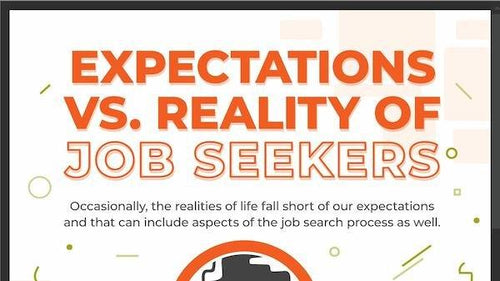
How To Build Your Career Plan
A career plan is a fantastic tool for tracking your development in your career. The value of establishing a realistic and viable career strategy cannot be overstated. The key thing not to forget here is "work the plan." You keep track of your progress and, as circumstances change, make alterations to your career plan.
Here are some fundamental suggestions to help you start planning and handling your career.

This blog contains affiliate links, meaning I may receive a small commission (at no cost to you) if you subscribe or buy something through the links I share. I only share links to products or services that I use myself or absolutely love!
Prepare a Plan
Preparing a career plan requires spending time getting to know and organizing yourself. The purpose of your profession is to make the most of your skills, talents, and abilities. Time spent reflecting on your specific set of skills, talents, and confines, as well as in what way they change, is never wasted. Pondering about these gives you lucidity, allowing you to make swift decisions when future prospects arise.
Quick variations in the economy, the nature of work, and the structure of firms have made career planning more problematic. Gone are the days when many career plans seemed like stair steps. You can no longer rely on foreseeable step-by-step career goals, and you must plan for greater flexibility, as well as more frequent valuation and breakdown of your progress and conditions.
Look around leaders who are the utmost at managing their jobs and enhancing potentials tend to obtain the finest promotions and jobs. Let's see if we can help you break into that group and manage your professional development with a well-organized career plan.
Your career plan must be built on your comprehension of who you are, what matters to you, and your goals and ambitions for the future. This in-depth understanding will aid you in the development of your career goal.
How Do I Achieve This?
You can get started by answering the following relaxed questions. Have you ever changed jobs beforehand? If so, what's your reasoning? What have been the most imperative influences in your life? What impact have these factors had on your career?
Examine your abilities now. What are your most significant abilities? What are your main advantages? What are your limitations? Make a list of your achievements and fiascos. Do you have any untapped abilities? What exactly are they? What are your expectations and goals for the future? What do you see yourself doing in the near future and in the lengthy run?
Now consider what other chances you have for changing your job path. Is there a significant gap that you need to address, or do you need to address a number of minor issues? In your professional plan, write out your objectives. Ensure that each item is measurable in the short and long term. If you need a self-study course and want to read 48 books in the following two years, for example, your career goal would be to read two volumes per month.
One area of career planning that many people find fruitful is improving job satisfaction. Look around to see if there's a possibility to take on a new project, participate in a job exchange, take on additional duties, come up with new ideas, mentor others, or even consider part-time or flexible work.
Changing yourself through learning new skills, upgrading others, resetting your expectations, and potentially re-examining current attitudes are all important aspects of career planning. You may enroll in some additional classes at a local institution, begin a self-study program, seek out additional mentors, or seek the advice of a professional counselor. These things will help you achieve your work goals and make your ambitions a reality.
Finally, if you've exhausted all internal options for job advancement and come up empty-handed, you may need to turn elsewhere to further your career. When considering a job move, take a close look at your current situation. Develop innovative ways to ensure the best possible match between what you want to do with your career and what's available. If you have skill gaps, close them; if you need to gain new talents, enroll in a training and study program; begin drafting and updating your résumé; and master the newest interviewing and job-hunting strategies.
It's possible that the right job won't be available at the correct time. Don't neglect a sideways move or a position that will provide you experience or boost your work happiness if you need to think beyond employment alternatives that offer a promotion or raise in compensation.
Final Thoughts
When you examine your career plan on a regular basis, you'll see that some skills get more valuable while others become archaic or that some skills become more useful while others become outdated. The idea is to reassess your career strategy on a frequent basis, at least once every three months, with an annual review being more serious. If you follow these measures, you will feel more in control, more satisfied with your current circumstances, and more positive and enthusiastic about your future.
Related Articles
-

10 LinkedIn Mistakes That Cost Job Seekers Interviews (How to Fix It)
Guest blogger outlines how to avoid these LinkedIn mistakes to drastically improve your chances of being noticed, whether you’re actively job hunting or just trying to grow your professional presence.
-

Guide To Choosing A Career In SaaS
Thinking about a career in SaaS? Guest blogger Jacob Wickett shares top roles, key skills, and how to break into this fast-growing industry.
-

Mastering the Modern Workplace: Essential Skills for Career Growth in the Age of AI
Guest blogger Sadie Smith shares a comprehensive guide to help professionals navigate unprecedented changes driven by technological advancement with confidence.
-

Navigating Your Career Path with a Family Nurse Practitioner Degree Program
Guest blogger Sadie Smith reveals how strategic planning in your healthcare career broadens your impact on patient care and community health.
-

Career Transitions: Navigating Your Path to Success in Healthcare and Beyond
Guest blogger Sadie Smith shares how to leverage your existing skills and experience while pursuing new career opportunities in healthcare and other industries.
-

Breaking Barriers: A Guide to Empowering Women in Manufacturing Leadership
Guest contributor Sadie Smith shares this comprehensive guide on how women can reshape the manufacturing industry landscape with actionable insights.
-

Navigating An Evolving Job Market With Strategies For Success
To thrive in a dynamic job market, you need to continuously adapt your job search strategies. Stay informed and flexible to position yourself for success.
-

Can Workplace Harassment Occur Over Social Media?
Guest blogger Caren Sainz breaks down how to set clear boundaries and seek legal assistance if you're a victim of workplace harassment over social media.
-

4 Personal Assistant Interview Questions and Answers
Guest blogger Liza Griffen, co-founder of Tyler Griffen, equips you with a deep understanding of typical interview questions and practical answers to help you showcase your skills effectively whether you're aiming to impress in your first personal assistant role or looking to step up in your career.
-

Crack Your Dream Company Interview
Guest contributor Nandkishore Rathi shares practical tips, strategies, and insightful advice from career experts to help you shine during written and verbal interviews.
-

Exploring The Realities Of Job Hunting (Infographic)
Guest contributor Joseph Matalone delves into common expectations in job seeking and the contrasting realities.
-

Don't Panic: 15 Ways To Prepare For A Video Interview
Guest blogger Daniel Boyce with Aware Recruiter delves into 15 actionable steps to prepare you for a stellar video interview experience whether you're a seasoned professional or just stepping into the job market.
-

5 Signs That A Company Values Employee Wellness And Safety
Guest blogger Sharon Feldman shares how asking questions about wellness and safety in your interview could give you insight into a company’s values.
-

Can An Employer Fire You For Being Sick?
Many employers can terminate an employee for falling sick frequently. Guest blogger Natalie Padilla shares all you need to know regarding being fired by an employer.
-

Tips On Building A Positive And Supportive Workplace
Guest blogger Adam Blacksmith shares how to embrace communication, celebrate diversity, and empower your team for success by fostering a positive and supportive workplace culture.
-

AI: Transforming Networking, Interviews, and Careers
Guest Author, Dean Fankhauiser. discusses how AI is revolutionizing networking, interviewing, career planning, and professional advancement.
-

Preparing for Different Interview Formats: Phone, Video, and In-Person
Interview Coach Ellie Hoekman shares specific preparation steps for phone, video, and in-person interviews.
-

Negotiating A Competitive Salary
Guest blogger Rohan Singh shares strategies for negotiating a fair salary that reflects your worth and fulfills your goals.
-

Can My Employer Ask Why I’m Taking A Sick Day?
Guest blogger Samantha Larson shares whether your employer has the right to ask you why you are sick and how much information they are entitled to when you take a sick day at work.
-

The Benefits of Coaching in the Workplace
Guest blogger, William Powell, shares some of the concrete examples of the benefits associated with employee coaching.
-

10 Facts & Stats About Sexual Harassment in the Workplace
Guest blogger Sharon Feldman shares how many people experience harassment every day, including at their place of work, to increase awareness.
-

The Ultimate Temping Guide for Beginners
Guest blogger Auria Heanley with Oriel Partners shares insight into what a temp job is and what to expect in order to make the most of a new job opportunity.
-

High Paying Career Paths After Learning Python
Guest blogger Rose Young with Codebasics.io shares some of the promising career paths you can explore after learning Python programming.
-

How To Ace Your Interview With A Staffing Agency
Guest blogger William Powell shares how to prepare adequately for an interview with a recruiting agency to increase your chances of landing your dream job.
-

How Do You Know When It's Time To Quit Your Job?
Guest blogger Katie Meyers shares when quitting your job is the right thing and how to go about it.
-

5 Things You Need To Know About Job Interviews To Succeed
Guest blogger Marcus Ralph shares 5 tips on what you can do before a job interview to be best prepared to make a solid first impression and land the job.



























